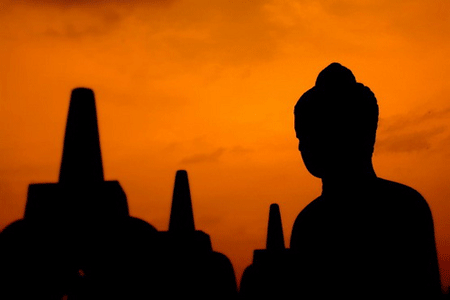
Since the beginning of times, humans have wondered if there’s more in life than mere survival, if there is a higher purpose for being alive or if life is just an accident of nature. Philosophers have answered to this question differently throughout history and eastern traditions were the first to register their version of the human saga in search of enlightenment. According to eastern theories, the ultimate purpose of life is to reach perfection and finally merge with the One (sometimes called God) after a painful pilgrimage in the manifested world
Buddhism – the Meaning of Life
All living creatures are already perfect, but they do not know that, Buddhist monks would say. There is a part of every creature’s system that is pure, wise, omniscient and perfect, but in order to be conscious of itself, this part (or monad), needs to be cast into the manifested world and incarnate many times first as a mineral, then as a plant, an animal and a human, in a process that lasts billions and billions of years.
At every one of these cycles, the monad acquires a new faculty, such as instincts, sensations, emotion, intellect, etc. At the end of the evolutive journey through many rebirths, one will have become completely conscious of his own perfection and will be ready to merge with the One, or the Unity – pure perfection. So, for Buddhists, the purpose of life is to become perfect through many incarnations.
Detachment, the Path to Nirvana
As reincarnationists, Buddhists believe that the only thing that can be considered really necessary and important are those things that can be taken to the afterlife in direction of the human ideal – lessons learned, compassion, ability to control the body through the mind, will. All the other things, such as material possessions, should be only tools to make physical life possible, but should never be given more attention than they deserve, as after death material things will be of no use.
Being detached from material things means not to depend on them to be happy and peaceful. The same can be applied to negative emotions such as anger, jealousy and resentment.
According to the law of karma, every emotion, thought, action or word generates a consequence that will need to be confronted, so cultivating bad feelings will only push a person back to a rebirth in which he or she will face the consequences of his or her behaviour. By being detached from emotions that cause sadness and anger, one will also be closer to nirvana – a state of mind in which nothing can disturb one’s peacefulness. This is when a person leaves the cycle of rebirths, reaching the human ideal.
Author : Thais Campos
Source : buddhismtaoism.suite101.com





Comments are closed.